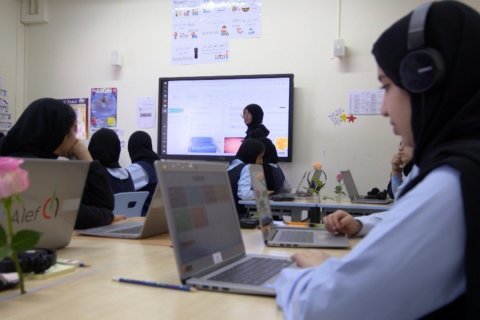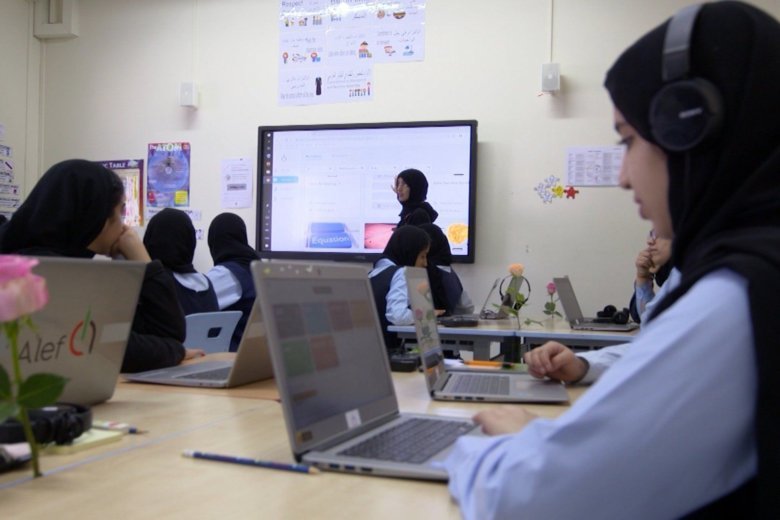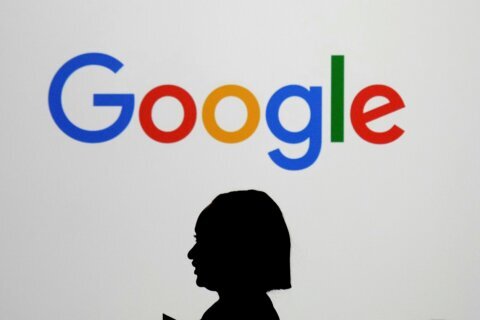
(CNN) — No books, no whiteboards, no markers or pens.
That’s the new reality for many classrooms across Abu Dhabi, where a company is using artificial intelligence to create a new learning experience.
Established four years ago, Alef Education has managed to get its digital education platform into dozens of schools in Abu Dhabi, as well as Al Ain, another city in the emirate. Alef has worked closely with the government of the United Arab Emirates to bring the platform to 25,000 students at 57 public schools.
It is also used in two private schools in Abu Dhabi. And the startup has made its first move into the United States, where its technology is used in two private schools in New York.
The platform focuses on core subjects like math, science and English. It helps students by using artificial intelligence to tailor the curriculum to individual demands.
“We capture millions of data points on a daily basis, a human could not process that many data points,” Alef Education CEO Geoffrey Alphonso told CNN. “What we do with that data is we look at machine-learning algorithms that can actually identify struggling concepts, mastery of different lessons,” he said.
It gives students, teachers and parents real-time feedback and adjusts accordingly. For students, that could mean a concept is repeated in a more personalized manner to help them understand it. The platform can also identify students’ strengthens.
“Wouldn’t it be great if you could look at artificial intelligence and data to drive kids into the right careers, into the right choices for post secondary education?” Alphonso said.
“If a student is doing really well at science, why not pique their interest in what it’s like to be a scientist or an astronaut?” he said. “That’s our future aspirations, to use really all of that data and AI to create the individual learning path.”
But there are concerns that embracing the technology could come at a cost, such as increasing the amount of time children spend in front of screens.
Alphonso said his program addresses this issue by limiting screen time to 3½ hours a day. The classes are followed by practical sessions in which children interact with one another and use their hands for experiments.
Alef Education plans to expand into more countries, adapting the program to suit each market. Its lofty vision is to affect the lives of a billion people over the next 10 years.
“We are definitely looking to grow in countries that have a need, desire and passion for transforming their education system,” Alphonso said, adding that the company aims to bring its platform to more than 300 schools this year.








